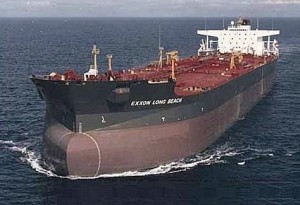 NEW DELHI, Jan 15 (Reuters) - A loophole in an Indian insurance scheme has allowed�Iran's state-run tanker company NITC to bolster oil exports by chartering a vessel insured by India's state-run firms, industry and shipping sources said on Tuesday.
NEW DELHI, Jan 15 (Reuters) - A loophole in an Indian insurance scheme has allowed�Iran's state-run tanker company NITC to bolster oil exports by chartering a vessel insured by India's state-run firms, industry and shipping sources said on Tuesday.European Union and U.S. sanctions to force Iran to curb its nuclear programme cut Iran's oil exports by more than half last year. An EU ban on insuring vessels carrying Iranian oil was among measures that disrupted the flow to top Asian buyers, as the maritime insurance industry is mostly based in Europe.
National Iranian Tanker Company (NITC) has for the first time chartered an Indian vessel covered under a scheme arranged by New Delhi through state-run insurers, sources said.
NITC has chartered the vessel the Omvati Prem, owned by Mumbai-based Indian shipper Mercator Ltd, and used it to carry an oil cargo that sailed from Iran in December for Indian refiner Mangalore Refinery and Petrochemicals Ltd , the sources said. The deal included cost, insurance and freight (CIF), they said.
India's junior oil minister Panabaaka Lakshmi in a written reply to a question in parliament in November on the insurance scheme did not specify if Iran could charter vessels with Indian insurance cover for supplies.
Use of the scheme effectively transfers the liability for any damage or spill to India's state-run insurers, and ultimately to New Delhi. When NITC uses its own vessels, the liability stays with its Iran-based insurer.
India established the scheme to keep some oil flowing after EU sanctions came into effect and disrupted shipping. The government arranged emergency cover that was meant for use by Indian flagged vessels chartered by local refiners.
There was little appetite for Indian shippers for the scheme as the insurance was limited to $50 million, a fraction of the $1 billion coverage that a supertanker would typically have from reinsurers against personal injury and pollution claims.
Mercator was the only company to use the scheme. Before NITC chartered the Omvati Prem, MRPL had used the vessel -- which can carry about 635,000 barrels -- to import Iranian crude.
MRPL is India's biggest buyers of Iranian crude and did not charter the vessel for this voyage due to commercial and technical reasons, one source said.
Another shipping source privy to the deal said Omvati Prem discharged in Mangalore on Jan. 8. Mangalore Port's website showed the vessel arrived on Jan. 7.
NITC has struggled to keep the flow of oil going to India as it lacks vessels of small enough size to dock at India's Mangalore port. One of the sources said NITC had chartered the Omvati Prem for about two months.
"Iran offered Mercator a better rate than MRPL, that's why they have taken the risk of joining hands with NITC," another shipping source said.
"Mercator has taken a risk as NITC is a blacklisted company under sanctions."
Mercator paid $26,105 for P&I cover to United India Insurance Company and 1,852,710 rupees ($34,000) for hull and machinery cover to The New India Assurance for a voyage between December 28 and January 27, documents seen by Reuters show.
Sources at the two insurance companies were not aware that Mercator had used the policy to deliver an Iranian cargo on a CIF basis.
Mercator did not respond to Reuters enquiries. MRPL, India's shipping ministry, United India Insurance and The New Indian Assurance Co Ltd all declined to comment for the story.
D.K. Mittal, secretary for�financial services�at the finance ministry, and Syed Akbaruddin, spokesman at India's foreign ministry, were not immediately available for comment.
India, along with Iran's other major Asian clients including�China�and Japan, has won an exception to U.S. sanctions on financial institutions that process oil�payments�by reducing Iranian oil imports.
NITC was the target of fresh EU sanctions imposed in October and was declared by Washington to be an extension of the Iranian state in July 2012. That prevents U.S. companies from dealing with it.
NITC has changed many tanker names as it adopts new tactics to keep Iran's oil exports flowing in response to sanctions.
China, India,�Japan�and South Korea are the top four buyers of Iranian crude and have all struggled to find ways around the shipping insurance ban.
Japan provides its refiners with government-backed insurance of up to $7.6 billion per tanker to ship Iranian oil, in line with cover from the international P&I Club.
By Reuters
The Iran Project is not responsible for the content of quoted articles.










